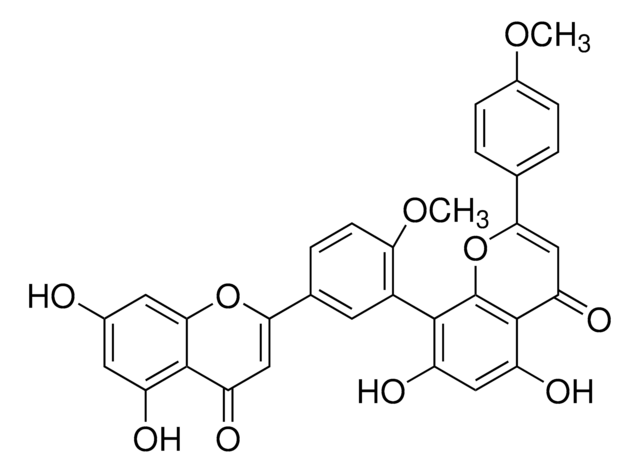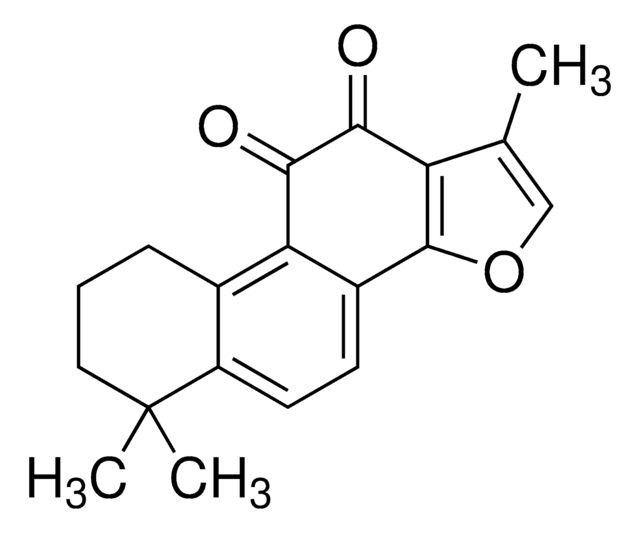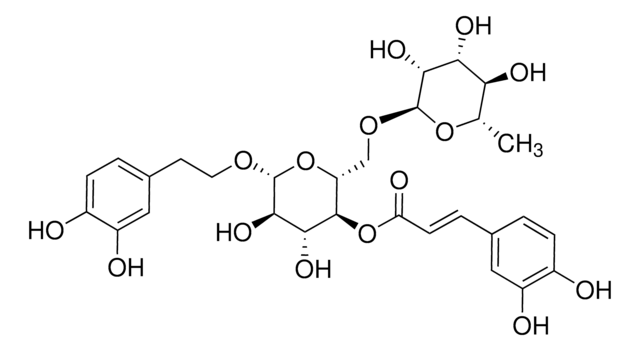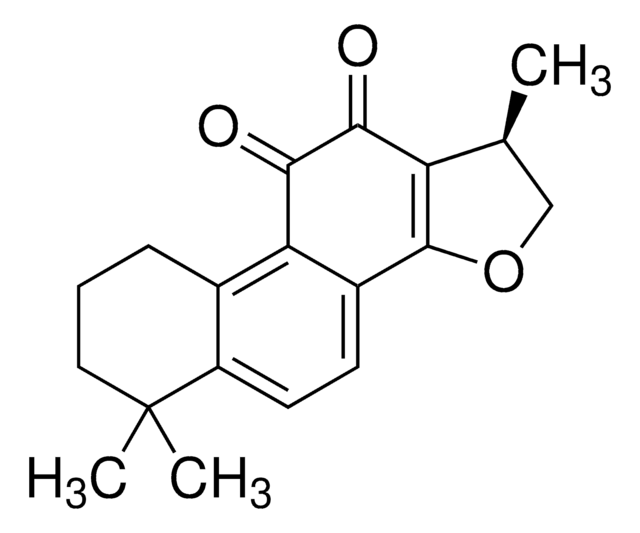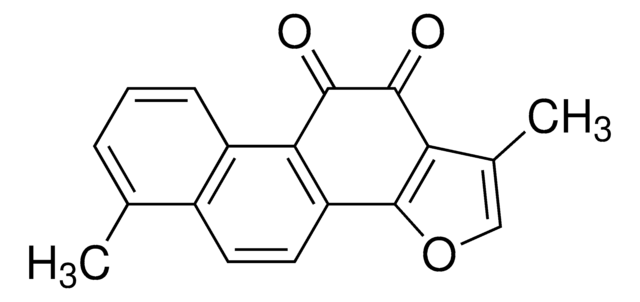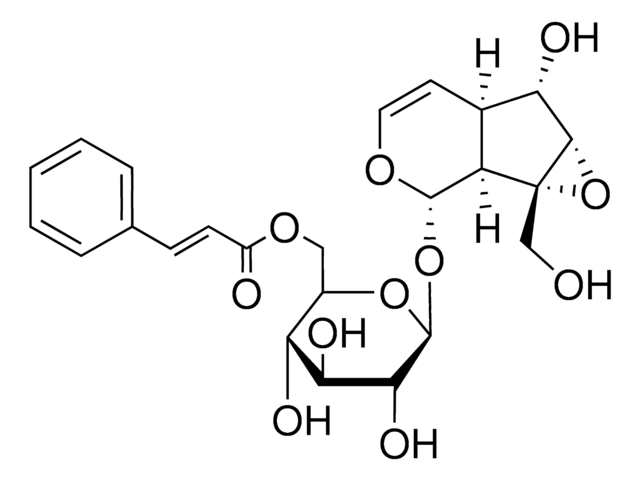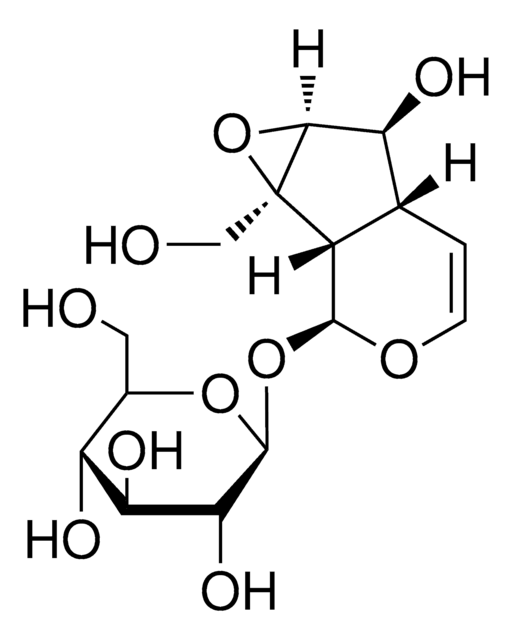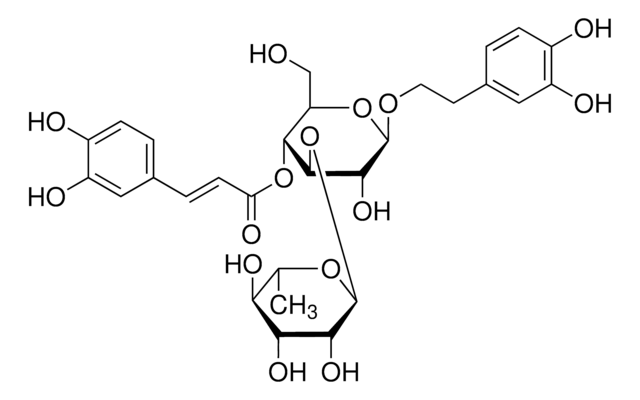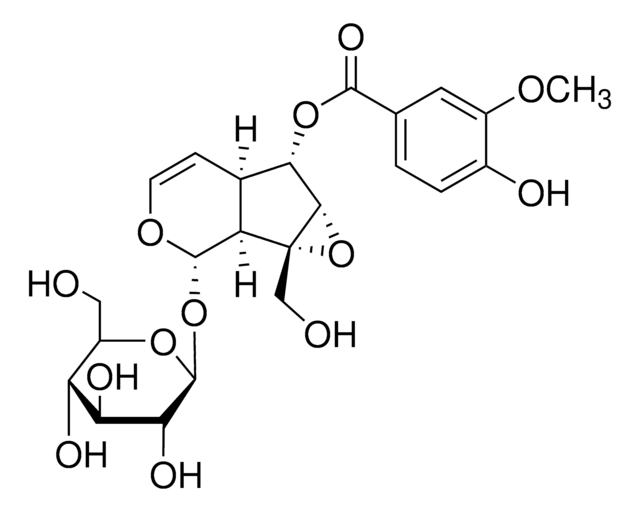D0947
Dihydrotanshinone I
≥98% (HPLC)
Synonym(s):
Dihydrotanshinone I, (-)-Dihydrotanshinone I, 15,16-Dihydrotanshinone I
About This Item
Recommended Products
biological source
Salvia miltiorrhiza
Quality Level
Assay
≥98% (HPLC)
form
powder
storage condition
protect from light
color
red
solubility
ethanol: 1 mg/mL, clear, orange to red
application(s)
metabolomics
vitamins, nutraceuticals, and natural products
storage temp.
2-8°C
SMILES string
C[C@H]1COC(C2=C3C4=C(C=C2)C(C)=CC=C4)=C1C(C3=O)=O
InChI
1S/C18H14O3/c1-9-4-3-5-12-11(9)6-7-13-15(12)17(20)16(19)14-10(2)8-21-18(13)14/h3-7,10H,8H2,1-2H3/t10-/m0/s1
InChI key
HARGZZNYNSYSGJ-JTQLQIEISA-N
Looking for similar products? Visit Product Comparison Guide
General description
Application
- to study its cytocidal effects on chemosensitive ovarian cancer cells with or without platinum-based chemotherapy
- as a treatment to study its inhibitory effects on triple-negative breast cancer cells growth by modulating epithelial-mesenchymal transition (EMT) markers
- as a potential SARS-CoV-2 papain-like protease (PLpro) inhibitor
- as a human antigen R (HuR) inhibitor to study its role in Th17 cell differentiation related to autoimmune neuroinflammation
- as a reference standard to analyze Salvia miltiorrhiza Bunge extract (SME) components using high-performance liquid chromatography(HPLC)
Biochem/physiol Actions
Storage Class Code
11 - Combustible Solids
WGK
WGK 3
Flash Point(F)
Not applicable
Flash Point(C)
Not applicable
Certificates of Analysis (COA)
Search for Certificates of Analysis (COA) by entering the products Lot/Batch Number. Lot and Batch Numbers can be found on a product’s label following the words ‘Lot’ or ‘Batch’.
Already Own This Product?
Find documentation for the products that you have recently purchased in the Document Library.
Our team of scientists has experience in all areas of research including Life Science, Material Science, Chemical Synthesis, Chromatography, Analytical and many others.
Contact Technical Service